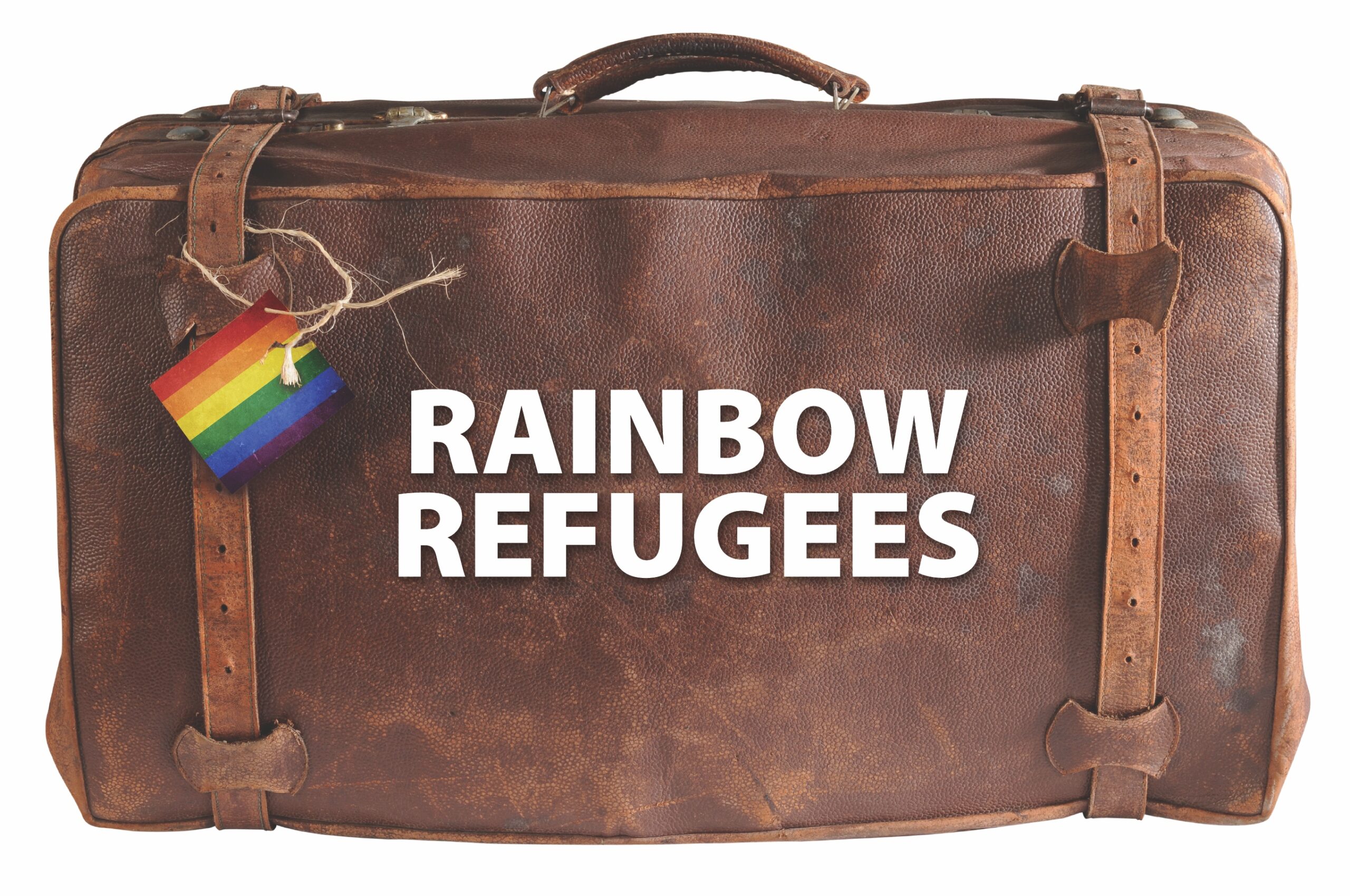He fled his country three years ago following the arrest of some of his friends. As they were outed as gay by the courts, Arash feared his own carefully guarded secret would be revealed. “Life was like stress and thinking: maybe you can die today, tomorrow or next week. Nobody knows. As soon as police find out about you, you will go to court. They could execute you. They could put you in prison, and you could be sexually assaulted. Lots of things could happen to you,” says Arash, age 24.
After waiting in limbo in a bordering country, he was finally granted refugee status and resettled in Halifax. While he says he feels safe in his adopted country, he admits he still has nightmares: symptoms of post-traumatic stress disorder that he is working on with the help of a psychologist. He is upgrading his English and plans to enrol in college later this year to study information technology.
Like other LGBTQ refugees who seek asylum here, Arash (who didn’t want his real name or country of origin to be published) came to Canada because of its progressive stance on human rights and the relative acceptance and security afforded the LGBTQ community. Indeed, Canada is one of the few countries that recognizes sexual orientation and gender identity as a basis for claims. While the federal government deserves respect for its acknowledgment of the unique needs of LGBTQ refugees, critics say recent reforms to the system could mean some LGBTQ claimants are needlessly refused Canada’s protection and returned to an almost certain fate in their home countries.
At the end of 2012, two reforms to the Immigration and Refugee Protection Act came into effect that set off alarms for those who advocate for LGBTQ refugees. The first was the introduction of the “designated countries of origin” list, which gives the minister of citizenship and immigration the authority to designate countries as “safe.” Claimants from these countries have their cases expedited, are barred from applying for work permits while awaiting a decision and do not have the right to appeal should their claims be denied. There are currently 42 countries on the safe list.
“Even if a country meets the minister’s requirements for being safe, there can still be widespread discrimination against LGBTQ people,” says Janet Dench, executive director of the Canadian Council for Refugees. “This puts LGBTQ claimants from these countries at risk. There isn’t time for them to prepare their case, and they can’t appeal if they need to.”
The second reform that worries refugee advocates is the expedited processing times. Under the new rules, timelines for claimants to compile their evidence, make their claim and appear before the Immigration and Refugee Board have been shortened to 60 days (30 days for claimants from “safe” countries). While previous wait times varied considerably and were sometimes criticized for keeping claimants in limbo for more than a year, standardized timelines that still allow for adequate preparation would be preferred. Dench says that the short timelines may be particularly hard on LGBTQ claimants, many of whom have faced extreme violence in their home countries and need time to establish trust before they have the courage to disclose their sexual orientation or gender identity. In addition, they have to “prove” their sexual orientation to the board.
“If you are claiming refugee status because of political reasons, you likely have some evidence from your home country to present at your hearing. If you have been closeted your whole life and lived in fear of disclosing your sexual orientation, you probably don’t have this [evidence]. The short timelines make it hard to have established a life in Canada or a connection with the LGBTQ community. So how can you prove this?” asks Dench. “Imagine trying to do that when the outcome of your hearing will determine the rest of your life.”
Since 2006, the Toronto-based Rainbow Railroad has helped more than 70 LGBTQ refugees seek safety from state-sponsored violence. Executive director Justin Taylor says that affirming church congregations can provide a safe space where claimants can build trusting relationships that will help them gain enough confidence to tell their stories. Churches can also help them settle into their communities, he says. This form of outreach is not new to United Church congregations, who have a long history of supporting both refugees and diverse community members.
Another challenge facing LGBTQ refugees when they first arrive in Canada is the lack of safe and affordable short-term housing, Taylor says. “They often arrive with a minimal amount of funds, and it takes a while for any sort of funding to kick in. Churches can help provide safe short-term housing for someone. This is very important.”
Like Arash, there are many LGBTQ refugees living overseas who have already had their status approved and are just waiting to be sponsored by a group here in Canada. Unfortunately, they are often waiting in situations not much safer than the conditions they fled. This is where congregations can take an even more active role, says Khwaka Kukubo, refugee program adviser for The United Church of Canada.
“It would be a blessing if churches could pass motions stating that if there is an LGBTQ refugee referred to them, they will be ready to welcome them,” she says. “Many of the cases that have been identified by the UNHCR [United Nations High Commissioner for Refugees] or the government of Canada require immediate evacuation and a group to welcome them.”
Rev. Tom Melvin, minister at Deer Park United in Calgary, heard this call to action and brought the idea to the Affirming Ministry Network of Calgary — an informal group of local congregations. With support from Kukubo and her office, the network completed the paperwork, raised some funds and welcomed their sponsored refugee in February 2014. “It was cold,” Melvin says with a laugh, recalling the meeting in the Calgary airport. “But he was excited to finally be here. Tired, but excited. We were too.”
The past year has been a busy one for the network as they have supported the young man’s settlement in Calgary. Group members have helped with housing and employment, connected him with community resources and accompanied him to appointments. “But it’s really just being a friend,” says Melvin. “Making sure he doesn’t feel alone and abandoned.”
Kukubo agrees. “Sponsorship of refugees is not a difficult endeavour. It is a blessing and something that can bring the community together. Refugees do not need babysitting. With the proper guidance and support, the majority of sponsored refugees [become] very successful Canadians.”
Melvin encourages congregations considering refugee sponsorship to work with others. “Not only for financial reasons, but just because of the human element in it. The refugee gets to know more people — different people. You have different gifts, talents, interests coming to the table.”
He also cautions against having unreasonable expectations. “You know, even here people will ask, ‘When is [he] coming to church?’ And he’s been a couple of times . . . but our commitment is to him. We’re not asking him to agree to do anything, but just be in Canada, be a good citizen, find a new life. So don’t have any expectations that [refugees] are going to be a part of your faith community.”
Caveats aside, Melvin says working closely with refugees is a real gift. “To see their tenacity, their resiliency, their determination to make a new life for themselves: that’s inspiring.” Kukubo echoes this: “They come with their gifts, joys, fears — and all they are hoping for is safety.”
In an online video last November, United Church Moderator Rt. Rev. Gary Paterson, who is gay, called LGBTQ refugees “some of the most vulnerable” and urged congregations to get involved. “If your church is thinking of sponsoring refugees, please consider refugees who face imprisonment and death simply because they are gay, lesbian, transgender or transsexual. You will be saving their lives.”
Arash doesn’t hesitate when asked about his new home. “It’s the best gift of my life being in Canada. I am safe. The group supports me to be happy.”















